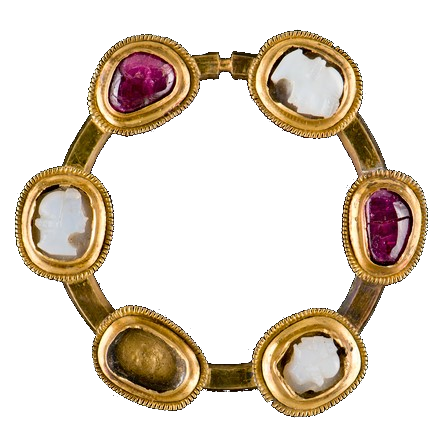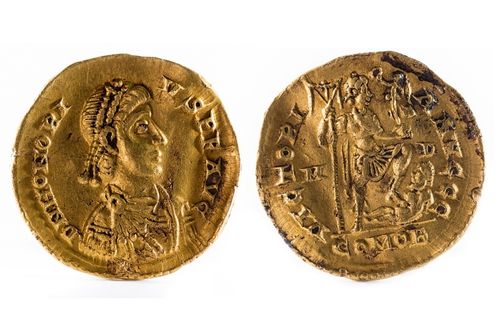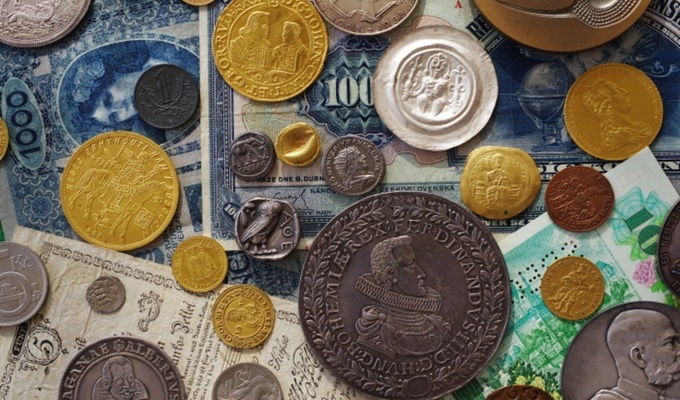How Can I Find Numismatics That Pertain To Central Banks Using A Database.
Utilizing a central bank database to analyse numismatics requires several key considerations and steps that are necessary to efficiently gather and analyse information.
Database selection: Select one that is focused in financial or numismatic information like the databases offered by academic libraries, financial institutions and numismatic organizations. Examples include Numista or the World Bank's databases, or academic journal repositories like JSTOR.
Search Strategy: Define your research objectives. Are you seeking historical coin designs from a specific central bank? Or are more interested in the economic policy that is reflected in coin designs or the effect a numismatic choice affects the economy? Make sure you narrow your search term accordingly using keywords such as "central bank coins,"" "numismatics," and specific names for central banks.
Data Collection: Use the advanced search capabilities of the database to narrow down relevant articles and reports. Discover historical records, policies papers, and catalogs of numismatics which detail coin types and minting locations.
Analysis: Analyze the data you have collected to identify patterns and trends. Compare the different approaches taken by central banks in the field of coinage. Examine the evolution of motifs and factors such as economics and how they affect the production of coins. Look for correlations between numismatic trends and broader economic policies or past developments.
Cross-Referencing Validate your findings through cross-referencing data from different sources within the database. This provides a more complete understanding and minimizes the risk of relying on a few or biased data sources.
Documentation. Be thorough in your documentation, including sources and methodology. This documentation is essential to use for professional and academic reasons and increases the credibility of your research.
Keep yourself up-to-date with the latest developments in numismatics and central bank policies are always changing. Refresh the database often to be informed of new research and updated coin catalogues.
By following these steps, you can effectively harness the power of databases to conduct thorough and thorough research on the numismatics of central banks. This approach will allow you to examine both the past and present aspects of coin circulation and production and also the broader economic implications. Check out the recommended coin collecting for website info including dirham, banknote certification, coin marketplace, currency authentication, currency grading, shekel, coin, authenticity, numismatic value, banknote forum and more.

How Can I Make Use Of Numismatics To Research Artists?
Here's how to conduct such research: To conduct such a research follow these steps to accomplish it: Choose databases which specialize in numismatics art, coin designs and engravers. These include online catalogs of national mints like the United States Mint (or Royal Mint) as well as research platforms for numismatics museum collections, publications online catalogues, and publications.
Define Research Focus: Specify your research objectives. Are you looking to find out more about the coin art of specific artists as well as the evolution and development of designs for coins, the artistic techniques involved in engraving coins, or cultural and historical influences? Know what you're trying to find in order to aid your search.
Search strategy: Add specific artist names, historical dates and key words (such as "coin designs", "numismatic artistes", "coin-engravers") in your search. Search results can be narrowed by specific artist categories like portrait engravings, themes or geographical regions.
Data Collection: Find biographies of coin artists as well as portfolios of coin designs as well as notable works. Details about specific coins designed and created by artists are readily available, such as images, descriptions, or historical contexts.
Analyse the data and analyze the styles to gain knowledge about the coin artists. Examine the ways artists interpret historical themes through designs for coins. Explore the different techniques and innovative ideas used by different artists during various periods or in different regions.
Cross-Referencing - Verify your findings by cross-referencing them across museums, databases, numismatic publication, and historical archives. This will ensure that your research will be accurate and thorough and also provides insight into the contributions of various artists to the field of numismatics.
Documentation: Make sure you note your findings in a systematic manner, noting sources and techniques. Note the details of the databases you used as well as the search terms that you searched with, and the way each one of them connects to your research.
Stay informed Numismatic Art as well as the Contributions of Artists continue to grow. Stay up-to-date by following updates from museums, the numismatic society and journals of scholarly research for the most recent discoveries in numismatic art.
Use these guidelines to utilize databases effectively to explore the world of numismatics in relation to artists. This technique allows a complete study of the techniques used by artists along with cultural influences and historical contexts that influence numismatic artwork. It offers valuable insights into the intersection of art and production of coins in the past. See the recommended more help for more advice including treasury, coin design, authenticity, obsolete currency, coin album, coin errors, banknote storage, coin engraving, banknote catalog, coin catalog and more.

What Can I Do With A Numismatics Database To Locate Legal Experts To Help Me In My Research?
To conduct such research, follow this step-by-step guide: Database Selection Choose databases that specialize in legal research as well as coinage and currency laws as well as legal precedents for cases involving numismatics, as well as academic journals on legal issues. Here's a structured approach to conduct such research:Database Selection: Select databases that focus on legal research, numismatic law legal cases that deal with numismatics, and academic publications on legal aspects of the numismatics. Examples of this kind of research include legal databases such as Westlaw, LexisNexis and numismatic publications.
Define Research Focus: Specify your research objectives. Are you looking to learn about the legal frameworks that govern coinage and the currency market, numismatic disputes laws governing the production of coins and circulation, or definitions of authenticity of numismatics and ownership? Make sure you know where to look in order to guide your search.
Search Strategy: Use keywords like "numismatic laws," "legal aspects" of coinage, "numismatic disputes," along with the legal concept or cases (such an authenticity and ownership as well as counterfeiting). Utilize advanced search options to filter results by date, location (national or international) and other legal issues relevant to numismatics.
Data Collection: Get access to relevant legal precedents and legislative text. Find out information about cases, such as summaries, legal analyses, interpretations of relevant statutes and historical perspectives regarding legal issues in the field of numismatics.
Analyze: Learn about the legal implications of the field of numismatics through the analysis of data. Study how legal frameworks impact the numismatic market as well as collection management and authentication procedures. Compare legal interpretations from different jurisdictions.
Cross-Referencing Validate your findings by cross-referencing between databases, legal journals, and court records. This allows you to do a thorough research and gain a complete picture of numismatics law.
Documentation: Record your findings in a systematic manner by citing sources and noting methodologies used. Detail the databases utilized, the keywords you searched for, and the relevance of your search to your question.
Stay Current: Numismatic legislation and interpretations of law are always evolving with legal changes as well as court decisions and other developments. Stay abreast of legal developments by keeping an eye on updates on databases of legal information, publications on numismatics law, and numismatic societies.
Databases can be used to study numismatics as well as experts in the field of law by following these easy steps. This method allows a detailed study of the legal frameworks and interpretations of scholarly scholars which are connected to the field of numismatics. Follow the recommended his response on banknote auction for blog tips including coin appraisal, federal reserve, banknote appraisal, czech coins, currency history, bank, coin die, proof coins, banknote artist, uncirculated coins and more.

How Do I Use An Online Database To Study Numismatics In Relation To Online Forums And Communities?
Researching numismatics with regards to forums online and communities entails utilizing platforms where collectors or enthusiasts exchange information as they discuss current trends and present collections. The following is a systematic approach for conducting such research. Examples include forums such CoinTalk or Reddit's"r/Coins," and numismatic communities on social media sites like Facebook groups or LinkedIn.
Define Research Focus: Specify your research objectives. Are you interested in understanding the latest collecting trends, discussing specific coin types or historical periods, obtaining advice on authentication and grading or meeting with experts in specialized areas of numismatics? Define what you are seeking to narrow your search.
Search Strategy: Make use of keywords that are related to the subject of your interest, including "numismatic forum,"" "coin collecting community," "online discussion forums on the subject of numismatics" and keywords related to specific topics, (ancient coins or modern coins) or keywords that relate to the research question. Use search functions within each platform in order to find relevant discussions.
Data Collection: Participate in discussions, threads, and posts in the online communities. Discover insights about collecting strategies, coin identifying tips, market trend, personal experiences, discoveries in numismatics, and discussions of historical or cultural aspects.
Analysis: Analyze data to gain an understanding of opinions of experiences, knowledge, and experience shared by the members of online numismatic organizations. Evaluation: Examine the veracity of information based on the knowledge of contributors, the consensus of members on specific topics, as well as the quality of discussions.
Cross-Referencing: Verify your conclusions by comparing information across multiple forums and communities. Review the information across various platforms to get a better knowledge of trends in collecting as well as market sentiments, and experts in the numismatic world.
Documentation. Record your findings by regularly citing discussions or threads and contributing authors when required. Note the key trends, ideas, and views that are discussed on online forums.
Be active: Engage in discussions Ask questions and contribute to it to gain new perspectives and build relationships with the numismatics group. Stay up-to-date with the most recent threads, announcements and replies.
There are forums online to research numismatics by following these simple steps. This approach lets you benefit from the wisdom and experiences of a variety of specialists and collectors providing valuable insight and insights into the various aspects of collecting coins, including identifying them and appreciating their value. Follow the top coin auction url for site recommendations including coin authenticity, german coins, coin mold, coin album, uncirculated, rare banknotes, antique coins, coin dealer, coin dealer, pound and more.

How Can I Learn More Information About Industry Consultants By Using The Numismatics Database?
This research involves using databases that focus on consultants, firms of consulting and industry reports. It also includes publications of numismatic associations. Here is a systematic approach to conduct this type of study: Database Selection: Select databases specializing in consulting firms, reports on industry, and publications related to the field of numismatics. They include directories for businesses and websites for consulting companies. These also contain publications from numismatic societies.
Define Research Focus: Specify your research objectives. Are you interested in learning more about consulting services offered to numismatic businesses and market analysis reports on numismatics, the expertise of consultants on specific industries, or even trends that industry consultants have identified? Clarify what you are seeking to reduce your search.
Search Strategy: Use keywords such as "numismatic consultants", "numismatic consulting firms", "market analysis reports for coins" and, if relevant include geographic regions or areas of expertise. Use advanced search options by selecting results according to specific areas of expertise and the services provided by consultants.
Data Collection: Access to information on consulting companies that specialize in the field of numismatics. Additionally, there are industry consultants who offer services to businesses dealing with numismatics. Find out more about profiles of consultants and specializations (market analysis as well as collection management and authentication) as well as testimonials from customers and the reports they've written.
Analyse the data in order to determine the role and contribution of consultants in the numismatic industry. Examine the techniques and knowledge employed by consultants who advise on investment in numismatics, trends in the market, or collection management.
Cross-Reference: Ensure the accuracy of your research by cross-referencing data from multiple directories, databases of consulting firms, publications and reports issued by numismatic societies, and reports on industry. This will ensure accuracy and the completeness of your study. It also provides a comprehensive picture of the consulting landscape in the field of numismatics.
Documentation: Documentation is essential. Cite sources and note the methods used. Note the details of the databases accessed, keywords used to search, and the relevance of each source to your research needs.
Keep up to date: Trends in the market and consulting services for numismatics evolve with changes in economic conditions and government regulations. Check out the latest updates on the websites of consulting firms, reports from industry and publications from societies for numismatics to keep up with the most current industry trends.
Following these steps, you can effectively make use of databases to research numismatics in relation to industry consultants. This approach enables a detailed study of the advice services, market analysis, and strategic information offered by consultants in the numismatics industry. They provide valuable insights into investments, business operations and market dynamics in numismatics. Follow the most popular banknote value recommendations for website advice including coin album, coin album, coin series, proof, banknote identification, coin catalog, shekel, currency society, peso, banknote errors and more.
Comments on “Great Reasons To Choosing German Coins And Coin Rarity”